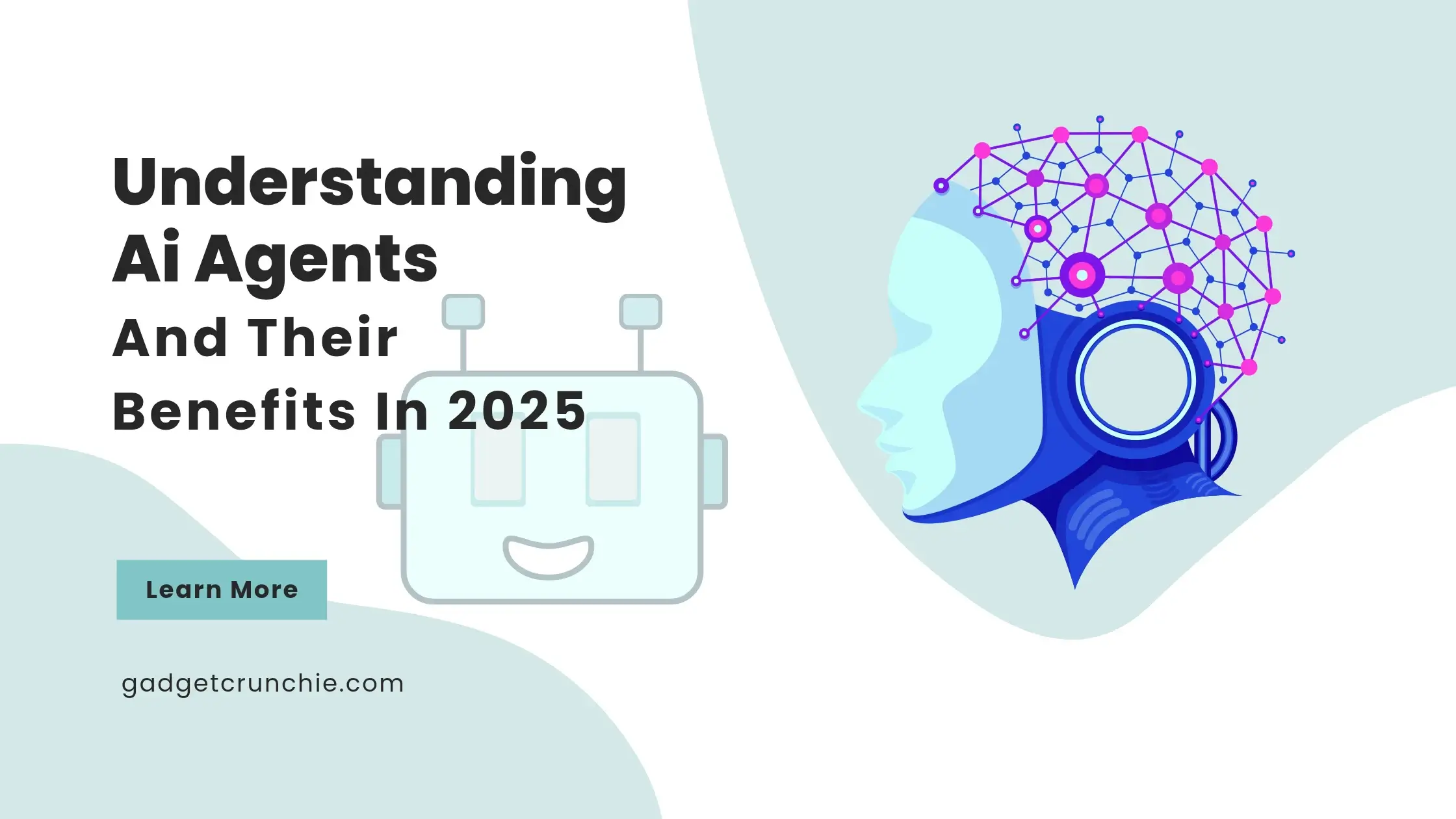Understanding AI Agents and Their Benefits in 2025

Introduction
Artificial Intelligence (AI) has evolved rapidly, and in 2025, AI agents are transforming how businesses and individuals operate. These intelligent systems automate tasks, enhance productivity, and provide personalized experiences. But what exactly defines AI agents, and what advantages do they offer?
In this blog post, we’ll explore:
- What AI agents are
- How they work
- Key benefits in 2025
- Real-world applications
What Are AI Agents?
AI agents are autonomous software programs that perform tasks by analyzing data, making decisions, and learning from interactions. Unlike traditional AI, which follows predefined rules, AI agents adapt dynamically using machine learning (ML) and natural language processing (NLP).
Read more about this topic.
Key Categories of AI Agents in 2025
- Virtual Assistants – Chatbots and voice assistants (ChatGPT, Google Gemini)
- Autonomous Agents – Self-operating systems in customer support
- Predictive Agents – Trend forecasting systems
- Collaborative Agents – Work alongside humans (e.g., GitHub Copilot)
How Do AI Agents Work?
AI agents function through:
- Data Processing – Analyzing datasets in real time
- Decision-Making – Algorithms choose the best action
- Continuous Learning – Improving performance using feedback
Example of AI in customer service:
✔ Understand customer queries
✔ Retrieve relevant information
✔ Provide instant resolutions
✔ Learn from past interactions
Challenges and Risks of AI Agents in 2025
1. Data Privacy Concerns
- AI requires large amounts of data—how is it stored and secured?
- Solution: Strong encryption + privacy compliance.
2. Bias and Fairness Issues
- Biased training data can cause discrimination.
- Solution: Diverse datasets + fairness audits.
3. Job Displacement Concerns
- Automation may replace certain tasks.
- Reality: AI augments, not replaces — reskilling is needed.
4. AI Security Threats
- Hackers can manipulate AI systems.
- Solution: Strong cybersecurity measures.
5. Over-Reliance on AI
- Blind trust in AI decisions can lead to errors.
- Solution: Human oversight is essential.
The Transformative Power of AI Agents Today
1. Enhanced Productivity
AI agents automate repetitive tasks, allowing humans to focus on strategy. Businesses report 30–50% efficiency gains.
Watch video content more about this topic.
2. 24/7 Availability
AI agents work nonstop, improving customer service and operations.
3. Cost Savings
Companies using AI agents save up to 40% on customer support.
4. Personalized Experiences
AI analyzes user behavior to deliver tailored content and recommendations.
5. Data-Driven Decision Making
AI processes real-time data to give accurate insights.
6. Scalability
AI agents easily handle increasing workloads without extra hiring.
Real-World Applications in 2025
- Healthcare – Diagnostics + monitoring
- E-commerce – Personalized shopping guidance
- Fintech – Fraud detection + automated transactions
- Smart Factories – Predictive maintenance
- Education – AI-powered tutoring
How Businesses Can Prepare for AI Agents in 2025
1. Develop Employee Skills
- Upskill teams to work with AI systems.
- Example: Prompt engineering courses.
2. Choose the Right AI Agent
- For customer service: ChatGPT-5, Google Gemini
- For analysis: IBM Watson (predictive agents)
3. Implement Strong AI Ethics
- Ensure AI aligns with company values + regulations.
See my latest and popularblogs.
4. Conduct Controlled Trials
- Pilot AI programs before full adoption.
5. Stay Updated on AI Regulations
- New AI laws are emerging — compliance matters.
Conclusion
AI agents in 2025 are no longer futuristic—they are a competitive necessity. From improving efficiency to reducing costs, their benefits are undeniable. Early adopters will lead their industries while individuals enjoy smarter, faster services.
FAQs
1. What are AI agents and how do they work?
Answer: AI agents use machine learning and NLP to analyze data, make decisions, and learn continuously. They operate 24/7 and handle tasks like customer service and data analysis.
2. What industries benefit the most from AI agents?
Answer: Healthcare, finance, ecommerce, manufacturing, and customer service are leading benefactors.
3. Are AI agents replacing jobs?
Answer: They automate tasks but also create new roles. Reskilling ensures humans and AI work together.